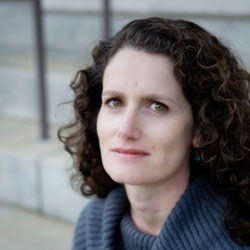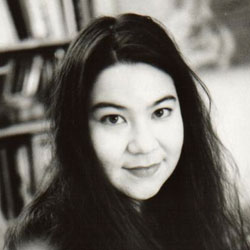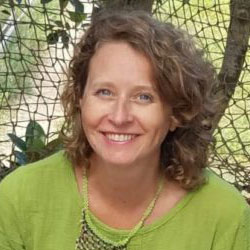Michael I wrote you
a story I didn’t know
what you did
what we did
if I should dig
you up but
it didn’t feel right
you should remain so far
from the sea
it didn’t feel right
I couldn’t see you
Is this the shape these things should take?

Notes on the Poem
Abigail Chabitnoy's 2020 Griffin Poetry Prize shortlisted collection How to Dress a Fish sheds intense light on the suffering and injustice generations of her family suffered, focusing on what her great-grandfather went through and endured. The poem "Shebutnoy" uses driving refrains to emphasize the poet's steadfast unearthing of her family's history. This week's Poem of the Week, "Family Ghosts" takes a markedly different but still affecting approach to capture the poet's commitment to her family's story. In both cases, Chabitnoy indicates that the poems are about or are addressing her relative directly. In the rigorous unspooling of statements preceded with "Because" in "Shebutnoy", it is as if the poet/narrator is laying out a careful thesis for Michael Chabitnoy during which she is trying to keep her emotions in check. In "Family Ghosts", she is calling out to Michael in plain and more plaintive fashion. In fact, this poem, which opens the collection, is an unalloyed cri de coeur. As a literal cry from the heart, it's abrupt, ragged, almost struggling for clarity ... "I didn't know what you did what we did" but in very short order, it determinedly rights itself - interestingly, with a repetition of the phrase "it didn't feel right" to the final question "Is this the shape these things should take?" which is a statement of intent to forge ahead, the morphing of that cri de coeur from passion and entreaty to protest, seeking truth and shaping reconciliation on one's own terms.









